Main Suspect In Murder Case Of Iranian Director Sentenced To Death
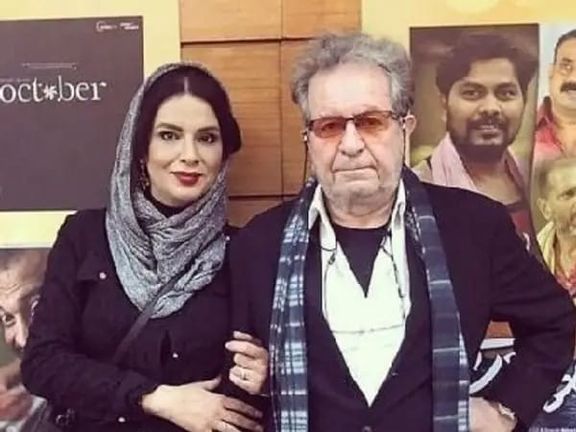
The primary suspect in the murder of renowned Iranian director Dariush Mehrjui and his wife, has been sentenced to death.

The primary suspect in the murder of renowned Iranian director Dariush Mehrjui and his wife, has been sentenced to death.
The Chief Justice of Alborz Province, Hossein Fazeli Harikandi said the court has sentenced the second and third-row defendants to 36 years in prison, lashes, and blood money.
Mehrjui and his wife, Vahideh Mohammadifar, a screenwriter and costume designer, were brutally murdered, found mutilated in October at their private villa in Zibadasht Fardis, Alborz Province, suffering multiple stab wounds.
According to the Faraz Daily news website, the perpetrators cut the throats of the couple and broke their arms and legs. Mehrjui’s head was beaten with a blunt object and his wife was almost beheaded.
The trial of the defendants took place on January 17 and 18 in Branch One of the Criminal Court of Alborz Province. Following the first session, the primary suspect denied the murder charge, claiming to have confessed under duress. They also denied involvement in theft.
Shortly before the double murder, Mohammadifar had reported a confrontation with a knife-wielding burglar outside their home who had threatened to kill her.
The couple had been threatened with death multiple times before their murders and although Mehrjui had reported these to the police on multiple occasions, the police did not take them seriously.
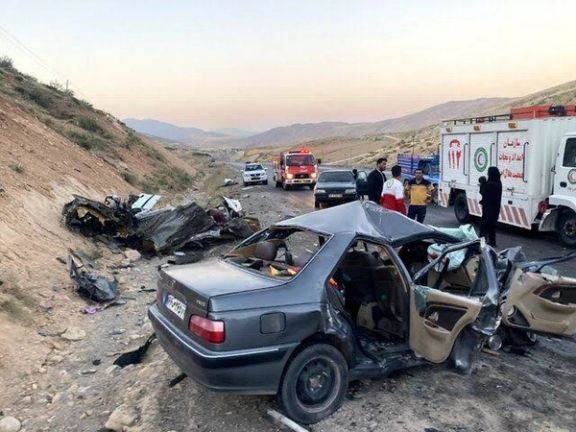
One quarter (23%) of road deaths in Tehran are drivers of domestically manufactured low-quality cars, most notably, the infamous Pride, according to Iran's judiciary.
“Contrary to the prevailing trend worldwide, where the highest deaths from accidents occur outside of cities, in Tehran Province, the highest number of fatalities is related to Tehran city, with 23 percent of the deaths being attributed to users of Pride cars,” said Abolfazl Nikoukar, social deputy of Tehran province's judiciary.
Deputy Traffic Police Chief Teimour Hadianfar recently labeled Iranian cars as "death wagons," lambasting manufacturers for poor quality control, particularly with imported parts sourced from China.
Iran's automotive sector, a vital component of the nation's economy, employs around 700,000 workers. Despite its significance, the industry faces growing scrutiny due to persistent safety concerns and a lack of effective regulation.
Iran's poor traffic safety record is evident in its annual death toll, estimated at approximately 20,000 deaths. World Health Organization (WHO) data from 2018 revealed that road traffic accident deaths in Iran accounted for 6.5 percent of all fatalities, highlighting the pressing need for comprehensive reforms to enhance road safety nationwide.
The statistics come on the eve of Iranian new year, Nowruz, when road deaths typically spike as Iranians travel the country for holidays and family visits.
Iranian Traffic Police said more than 85,000 car accidents occurred during the Nowruz holidays last year, with 871 people killed, one third of those, children.
The statistics were dominated by two Iranian made cars, notorious for their poor quality, in addition to the poor infrastructure of Iran’s roads.
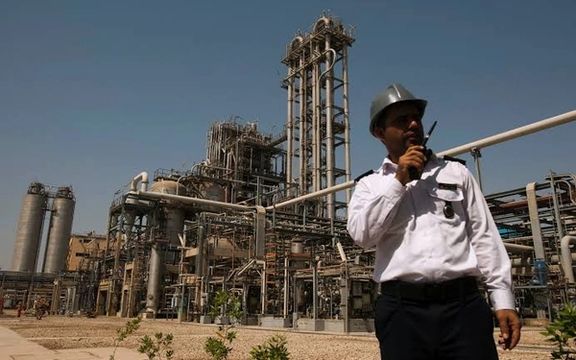
Iran, ranked as the 11th largest consumer of petroleum products globally, grapples with an increasingly unprofitable and outdated crude oil refining sector.
The majority of its petroleum products, approximately 85percent, are sourced from refineries established before the Islamic Revolution in 1979.
According to an official document, prepared by Iran’s oil ministry and seen by Iran International, only three of its nine crude oil refineries have beenoperationalized post-1979, with combined capacity of less than 265,000 barrels per day. Originally constructed based on Western licenses, these refineries now rely on domestic or Chinese technologies for upgrades.
Iran's refining facilities primarily yield bitumen and mazut from crude oil, with a minimal portion meeting global standards for gasoline and other petroleum products. The report reveals that only 25 percent of gasoline and 54 percent of gasoil (diesel) produced meet Euro 4 or Euro 5 standards.
In 2015, shortly after the JCPOA was sealed, Iran's oil ministry proposed a $43 billion plan to modernize its refineries and increase crude oil refining capacity by 25 percent to 2.2 million barrels per day. Contracts were signed with companies like South Korea's Daelim Industrial and SK Engineering and Construction, as well as China's Sinopec, to upgrade refineries. However, all agreements were scrapped following the US withdrawal from the JCPOA in 2018 and subsequent sanctions on Iran.
Despite the construction of the Persian Gulf Star refinery in 2017, which uses domestic and Chinese technologies to refine gas condensate, it does not produce standard gasoline or diesel. The refinery's focus on gas condensate, an ultra-light oil extracted from gas fields, further underscores Iran's challenges in modernizing its refining capabilities.
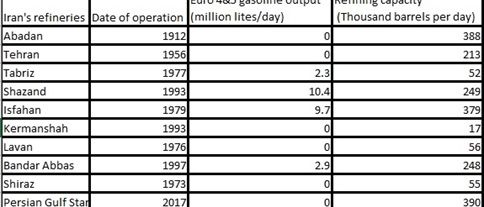
The oil ministry's document reveals that less than 25 percent of domestically produced gasoline meets Euro 4 and 5 standards, and it is only available in eight out of 31 provinces. In the remaining provinces, non-standard gasoline is utilized. However, the most concerning issue with the country's refineries is the conversion of 30 percent of crude oil into highly polluting mazut and bitumen. According to the oil ministry's report, Abadan, the nation's largest refinery with over a century of operation, converts 44 percent of crude oil into mazut and bitumen.
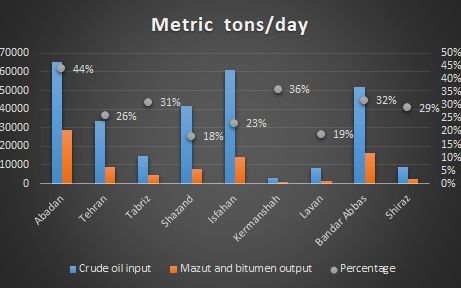
Iran's refineries not only convert 30 percent of crude oil into mazut and bitumen, but they also produce highly sulfur-laden fuel, with a sulfur content of 3.5 percent. This sulfur level exceeds the required standards for fuel used in ships navigating open seas by sevenfold. Despite its environmental hazards, Iran utilizes this highly polluting fuel in power plants and industries located within or near urban areas.
According to the oil ministry's report, Iran's consumption of mazut surged by 110 percent last year, reaching about 9 million metric tons. This sharp increase reflects the country's ongoing struggle with gas shortages since 2018. In response, Iran has been gradually substituting diesel and mazut with gas in both industrial and electricity generation sectors.
Data from Klpler's statistics, obtained by Iran International, reveals that Iran's exports of diesel and gasoline hit zero in 2021. Meanwhile, mazut exports experienced a significant decline, plummeting by 42 percent to 217,000 b/d between 2021 and 2023 due to escalating domestic demands.

Iran grapples with exacerbated gas shortages during winters, leading to a doubling of mazut consumption in the power sector and industries, a highly polluting practice. Additionally, the country has been contending with gasoline shortages since mid-2022.
According to documents from the oil ministry obtained by Iran International, Iran produced 96 million liters per day of gasoline, marking a modest 0.75 percent increase compared to the previous year. However, consumption surged by 13 percent to reach 116 million liters per day during the first seven months of the current fiscal year, which began on March 22, 2023.
To partially address the deficit, Iran augmented its gasoline supply by adding 13 million liters per day of chemicals, aromatics, and the carcinogenic substance MTBE (Methyl-tertiary-butyl ether), a gasoline additive known to cause testicular and lymphohematopoietic cancers in rats. Despite these measures, the remaining shortfall was filled by importing gasoline or drawing from existing storage reserves. Notably, Iran's gasoline storage as of September 2023 declined by 30percent year-on-year, dropping to below 800 million liters, equivalent to just one week's worth of consumption volume.
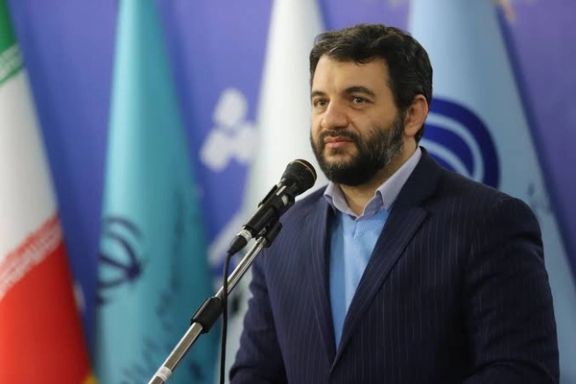
Oil revenues will fund a $700m Persian Gulf Bridge project in the south of Iran connecting the Qeshm Free Zone to the mainland, claims Tehran.
The Secretary of the Supreme Council of Free Zones in Iran, Hojjat Abdolmaleki said: "We have also had negotiations with Chinese contractors, and it is planned for the project to be among the finance and credit line projects of Iran and China."
His comments come as Iran is offering substantial price reductions to its principal oil buyer, China, which also barters goods and services with Iran in exchange for oil amidst global sanctions.
"The President has ordered the allocation of resources from the general budget and from oil barter, and we are striving to put the project into operation within the next three years," he added.
"Approximately $700 million is needed for the entire project, including the completion of railways and highways, but its benefits for the country are very high."
Just last week, Iran announced a $20-billion high-speed train network which it said is to be funded through the National Development Fund and oil barter agreements amid the country's worst ever economic crisis.
In 2021, Tehran and Beijing signed a controversial 25-year co-operation deal which was first proposed by Iran's Supreme Leader Ali Khamenei during President Xi’s visit to Tehran in 2016.
Its details have never been disclosed and a leaked copy of the final text only outlines the general terms of the agreement. Tehran officials, beleaguered by an economic crisis they cannot solve, hoped it would bring billions in investment and make Iran part of China' Belt and Road Initiative, a multi-trillion-dollar infrastructure scheme intended to stretch from East Asia to Europe.

Iran's Foreign Minister has met with leaders of multiple Iran-backed Palestinian militant factions based in Damascus as the war in Gaza continues to fuel a proxy war around the region.
Iran's proxies in Syria, Iraq, Lebanon and Yemen have joined Hamas's war on Israel and US targets in the region since October 7 when Gaza-based Hamas invaded Israel.
"Today, the issue of Palestine has become the world's top issue, and October 7 and the Al-Aqsa Intifada showed that Palestine is alive and will not surrender to the demands of the Zionist regime and the coercive powers, including the United States government," Hossein Amir-Abdollahian stated during the meeting. It is believed that at least 15 members of factions such as Hamas and Palestinian Islamic Jihad were in attendance.
During the regional tour, the Iranian Foreign Minister also met Syrian President Bashar al-Assad in Damascus on Sunday and senior Lebanese government officials and leaders of Palestinian groups in Beirut on Saturday.
Iran continues to deny its hand in the atrocities of October 7 in which 1,200 mostly civilians were murdered by Hamas and another 250 or more taken hostage to Gaza. However, Tehran continues its very public, high level engagement with Palestinian militant groups which it has for years funded, armed and trained.
Israel has since intensified its airstrikes on Iranian-backed military targets in Syria and Iranian military personnel since the war broke out, with high-level killings gaining pace.
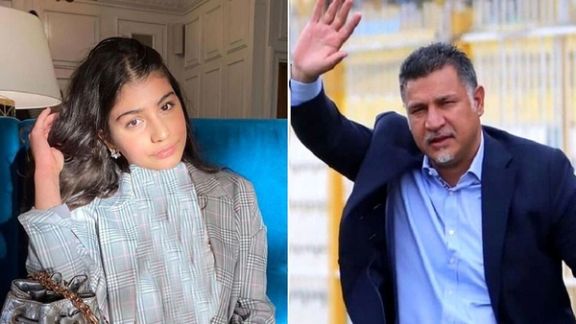
Iran’s hardliners are incensed by the failure to prosecute Ali Daei's teenage daughter for appearing without a hijab on an online football show where she surprised her father for his birthday.
In a scathing critique published on Friday, Raja News, a website associated with the ultra-hardliner Paydari Party, expressed public outrage, questioning whether ordinary individuals would have faced legal repercussions for similar actions. The absence of judicial action against Noura Daei, the footballer's teenage daughter, was labeled as "judicial discrimination" by Raja News, warning of its potentially detrimental impact on public morality and religious devotion—a sentiment echoed by hardliners across social media platforms.
The incident occurred during an episode of the internet show "Football 360," hosted by Adel Ferdosipour, where the thirteen-year-old daughter of the former German Bundesliga striker made a surprise appearance to celebrate her father's birthday.
Ali Daei’s daughter Noura entering the studio to surprise her father.
Noura Daei entered the studio dressed simply in a black hoodie, sweatpants and trainers, but despite Iran's mandatory hijab rules, which requires girls to cover their hair from the age of nine, her dark hair was cascading on her shoulders.
Noura Daei hugged her father and when she became emotional, Ferdosipour, his father’s old friend, caressed her head for a second. This, too, has angered hardliners who have also criticized him for touching a girl he is not related to by blood, and Daei, for allowing him to do so.
“Last week, scorning the law and Sharia, Adel Ferdosipour sat Ali Daei’s daughter with uncovered head in his program. None of the authorities dared to prosecute them for this. Is the prosecutor, as the public’s representative, in winter hibernation?” a hardliner tweeted.
Daei and Ferdosipour have made no comments about hardliners’ criticisms and their demand for the punishment of Daei’s young daughter for not wearing the hijab.
Many social media users, however, have defended them and pointed out that the same hardliners have been silent about women not wearing the hijab in the state-sponsored February 11 anniversary of the Islamic Revolution march or the recent visit of a pro-Palestinian American adult movie actress Whitney Wright to Iran.
A woman with uncovered hair at state-sponsored anniversary of Revolution march.
“They see the hair of Ali Daei’s 13-year-old daughter and protest that it is defiance of hijab. But they even encourage it when a 40-year-old woman shows her hair [in the march] because it is propaganda for the regime,” one of the tweets on the subject said.
Daei, a former soccer star and captain of the national team, has garnered even greater popularity among Iranians for his vocal support of anti-government protesters. With 12.4 million followers on his Instagram page, he has refrained from commenting on the hardliners' attacks against him and their demand for his daughter's punishment.
Both Daei and Ferdosipour, a renowned soccer commentator, are considered "undesirables" by the regime due to their outspoken support for Iranian protesters on numerous occasions, resulting in their exclusion from official events and programs in recent years.
“What have you done to this country? My daughter is asking me what has happened [to Mahsa Amini]. What can I tell her? For what sin [was she killed?” he wrote on Instagram on September 16, 2022, when the 22-year-old Mahsa Amini died in hospital after a head injury she sustained in the custody of morality police.
Daei's philanthropic efforts faced government interference in 2017 when he and fellow footballer Karim Bagheri attempted to raise funds to aid the earthquake-stricken people of Kermanshah. Authorities froze their accounts, obstructing their charity drives.
The pressure on Daei and his family escalated further after his Instagram post during the Woman, Life, Freedom protest. In December 2022, security forces diverted a Dubai-bound Mahan Airlines plane to Kish Island to prevent Daei's wife and daughter from leaving the country. Furthermore, in early December of the same year, security forces sealed two of his businesses, a jewelry shop, and his restaurant, following his participation in a day of strikes called by protesters.
Ferdosipour, known for his immensely popular show "90" aired weekly on the state broadcaster IRIB, was banned from all IRIB sports programs in 2018. With an audience sometimes surpassing 30 million, he was once listed among Iran's top 20 most influential figures by Newsweek magazine in 2009.
In early 2022, Ferdosipour launched "Football 360," a weekly YouTube talk show also available as a podcast and mobile application. With over a million installations by Iranians on their phones, the show has gained significant traction.